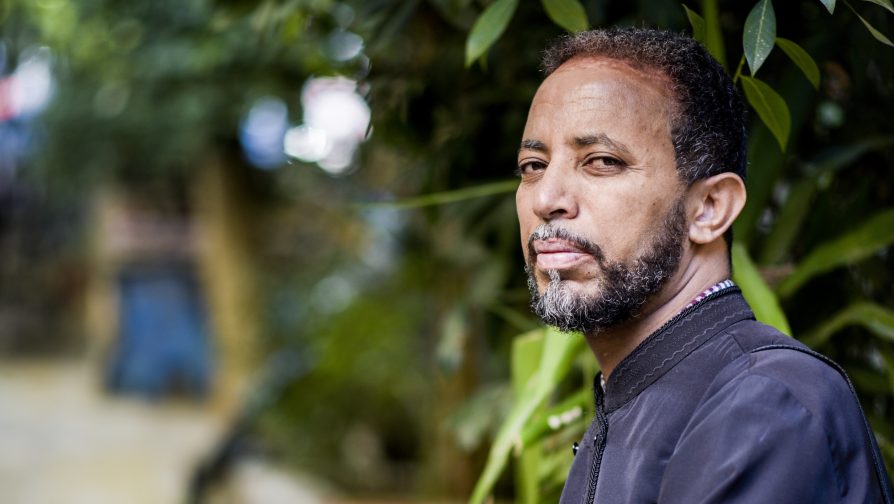Walking through the streets of Athens, there is a calm about Solomon Haile Mesein that belies the suffering and pain of separation that he has endured for the past nine years. An Eritrean priest of the Orthodox Church, Father Solomon fled his homeland in 2007, leaving behind his elderly parents, […]
Walking through the streets of Athens, there is a calm about Solomon Haile Mesein that belies the suffering and pain of separation that he has endured for the past nine years.
An Eritrean priest of the Orthodox Church, Father Solomon fled his homeland in 2007, leaving behind his elderly parents, wife and three children. After being temporarily reunited with his family in Kenya, he sought safety in Greece alone in 2010, where he was granted refugee status in 2011.
“Not one night goes by without me lying awake, thinking about them,” he says in his soft, soothing voice as the traffic rumbles by. “I take things one day at a time.”
Despite Greek and EU law providing for the right of refugees to family reunification, a raft of hurdles, including time limitations, complicated consular procedures and a lack of guidance, make it difficult for many like Father Solomon to be reunited with their loved ones. Those without full refugee status are not even eligible to apply for family reunification in Greece.
“Everyone has the right to be with their family. But, refugee families can easily become separated when they are forced to flee and can spend years apart,” says Philippe Leclerc, UNHCR Representative in Greece. “Procedures in Greece should be simple enough, so that refugee families approved for reunification can actually reunite.”
With help from UNHCR and its partner, the Greek Council for Refugees, Father Solomon has spent years trying to bring his family together again through the correct legal procedures. His application for family reunification was twice rejected by Greek authorities and he is waiting for the outcome of a new court decision on an annulment application made in January 2019.
According to Greek Council for Refugees legal team the rejection is a clear violation of the relevant national and European laws on refugee family reunification, and international law on human rights.

Father Solomon seen in a busy Athens neighbourhood.
© UNHCR/Christos Tolis
“For the state I am just a case,” says Father Solomon, sadly. “They don’t know my face, my person, they don’t care.”
UNHCR is only aware of a handful of cases being able in recent years to obtain visas and reunite with their families in Greece. In most cases, they have been thwarted by administrative hurdles at the last stage of the procedure. UNHCR has welcomed a government decision from August 2018 on the issuance of entry visas to Greece for family reunification and encourages its effective implementation.
But buoyed by his faith, Father Solomon has not given up hope.
He runs a small worship centre in central Athens with the help of his congregation – even those who have long since found new homes in other European countries. “Their support has been overwhelming,” says Father Solomon, smiling.
Share on Facebook Share on Twitter